
What it’s like living on a Greek island where people live longer than just about anywhere else
Legend has it that Icarus flew too close to the sun, ignoring the warnings of his father, Daedulus. As Icarus excitedly soared across the sky, his wings, which were made of feathers and wax, began to melt, and he tumbled into the sea and drowned. His body later washed up on an unnamed island. In honor of his fallen son, Daedulus named the island and its surrounding sea after Icarus. (Lily Bungay)

Many of us hope to live long, fruitful and healthy lives. And some of us, in the end, are more successful at that pursuit than others. But there are several regions around the world that have been found to foster those kinds of lives more than others. At least, that’s what New York Times best-selling author and National Geographic Fellow Dan Buettner determined after studying the work of two researchers. In a study published by the Journal of Experimental Gerontology, Gianni Pes and Michael Poulain identified Sardinia as the region with the highest concentration of male centenarians. Buettner, along with a team of researchers and demographers, found other regions where they determined that people lived longer, including Okinawa, Japan; Nicoya, Costa Rica; Loma Linda, Calif.; and a small, out-of-the-way Greek island called Ikaria.
Photographer Lily Bungay became intrigued by Ikaria and decided to see what life was like for its residents. What she found was an island where people enjoy activities such as beekeeping and growing their own vegetables. Bungay says that, “Ikarians are more likely to celebrate their 100th birthday with the whole village, than to be segregated from their community. Institutional care homes do not exist on the island, but instead, every individual home is cared for.”
Bungay’s exploration of Ikaria was fueled by her interest in aging and “how we talk about (and don’t talk about) and visualize older people.” The result of her exploration came to fruition in a project she calls “a visual ode to the residents I met, their landscape, diet and the magical feeling that time is irrelevant on the island . . . Recurring shapes and whispers of Greek mythology are punctuated by the stories of characters found living in the mountains. This is not an attempt to uncover the secret to the islanders’ longevity, but rather, to trace the unhurried rhythms of a community where every person is valued and included, no matter their age.”


Avgera, 91, climbs into the chicken house to collect an egg for her breakfast. Avgera starts each day at 6 a.m., taking care of her chickens before watering her plants and picking vegetables. (Lily Bungay)


Inside Avgera’s living room. While the majority of Ikarians are Greek Orthodox Christian, almost everyone, including Avgera, is keen to point out that they are not “fanatics.” (Lily Bungay)

Nikos comes from four generations of goat herders, but he thinks he could be the last to carry on the work. (Lily Bungay)

Nikos feeds his goats. (Lily Bungay)

An apple tree bears fruit. (Lily Bungay)

One of Nikos’s goats. (Lily Bungay)

(Lily Bungay)

Koyla, 93 years old. (Lily Bungay)

A custard cream and peach dessert to celebrate a baby taking her first steps. Made by her grandmother. (Lily Bungay)

A forest of pine trees covers much of the north side of the island, giving the island its sweet and refreshing fragrance. Among the trees, candy-colored bee boxes sit in higgledy-piggledy semi-circles. The honey, which most Ikarians eat every day, is thick and has a deep amber color. (Lily Bungay)

(Lily Bungay)

Christos is 82 years old and is known locally as the strongest man in the village. He surveys his magnificent garden, which he built by himself. (Lily Bungay)

(Lily Bungay)

(Lily Bungay)

A view overlooking the ocean. (Lily Bungay)
Πηγή: www.washingtonpost.com






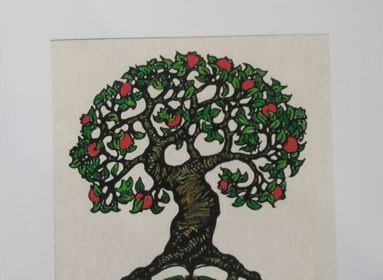














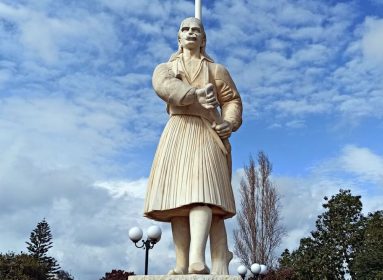









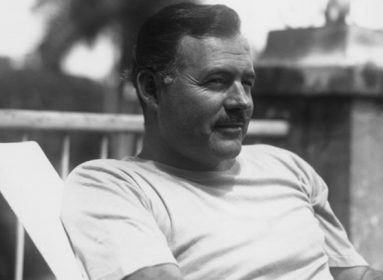



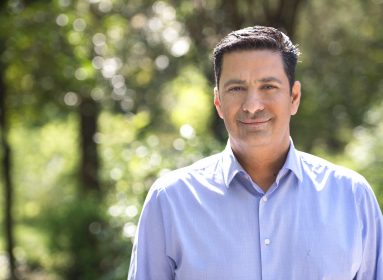
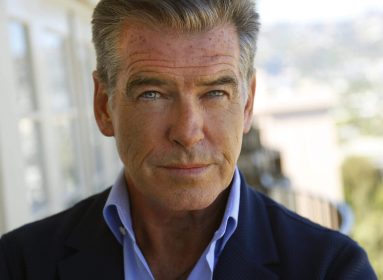




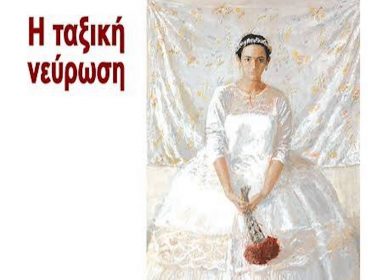



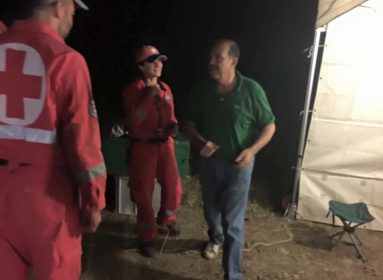





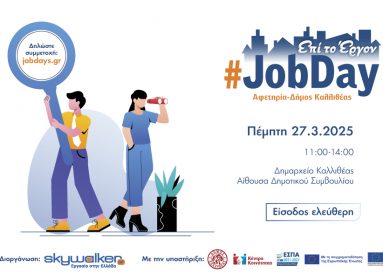
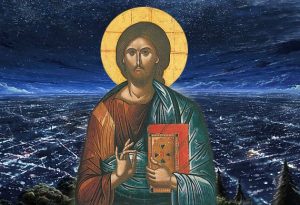


 Το σκίτσο είναι του Βαγγέλη Παυλίδη
Το σκίτσο είναι του Βαγγέλη Παυλίδη
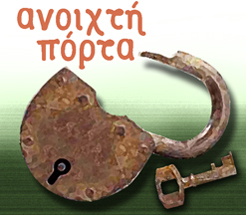
 Στηρίξτε-Ενισχύστε την iΠόρτα με τη δική σας χορηγία…
Στηρίξτε-Ενισχύστε την iΠόρτα με τη δική σας χορηγία…